We wanted to know how different professors from different disciplines would answer the same questions. Read on for some insight — and a little fun — from the deans of the five academic schools at St. Edward’s.
What is the biggest challenge facing society?
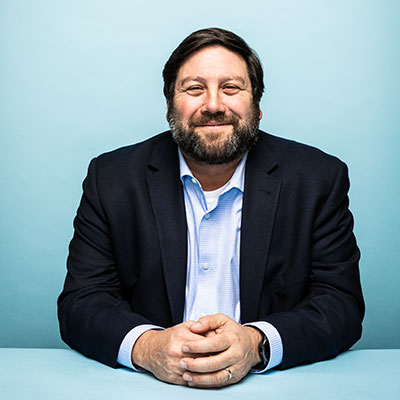
David Altounian, The Bill Munday School of Business:
Access to resources influences civilization— everything from food, water and shelter, to education, information, good jobs and healthcare. So, I would say income inequities and the access, or lack of access, to resources afforded by income or even geography are major issues impacting our society today.
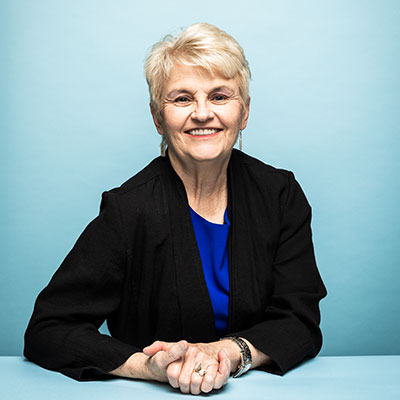
Glenda Ballard, School of Human Development and Education:
One of the biggest concerns I see is our inability to communicate around complicated, fractious issues. We’ve lost our ability to allow for differences of opinion, perspectives, attitudes and ideas about issues. The inability to communicate is exacerbated by the absence of actually listening to one another and the inevitable personalization of these important issues.
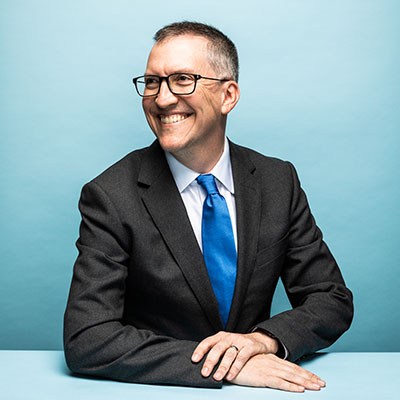
Gary Morris, School of Natural Sciences:
Climate change, artificial intelligence and genetic engineering will likely have the most significant impact over the next century. Each of these issues will require a substantial investment of intellectual capital to identify a path forward for how humanity copes with these changes in ways that include moral and ethical considerations.
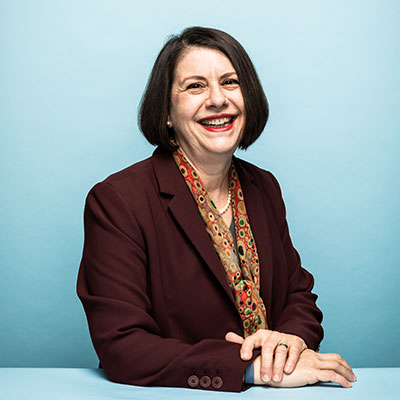
Sharon Nell, School of Arts and Humanities:
The lack of education — as well as a lack of respect for education — is a root cause for the growing political division in our country. And it’s no accident: Fostering an uneducated electorate has been a political strategy at both the state and federal levels. Yet, it is so important for all citizens that we not only show up to vote but that we also arm ourselves with facts to enable us to make good decisions at the ballot box.
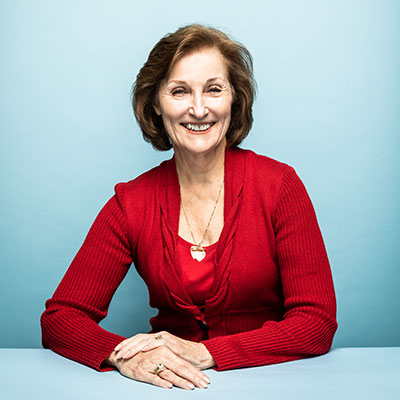
Brenda Vallance, School of Behavioral and Social Sciences:
We’ve lost our ability to hold critical conversations in a respectful way, in which we both hear and listen to one another. Ultimately, when we can’t respect another’s opinion, we also can’t engage in healthy discourse.
How is St. Edward’s part of the solution?
Altounian:
I chose to teach at St. Edward's because the faculty and administration are concerned with impacting students for the long-term. I believe we achieve that by engaging and educating students in both heart and mind. We help students see and understand our individual and collective responsibility to do well but also to do good.
Ballard:
Students in our school are the future helpers — educators, physical therapists, social workers, counselors — and they are looking to us for understanding and insight but also to model how to react to certain situations. As leaders, we have to demonstrate tolerance, respect and a willingness to anticipate ambiguity.
Morris:
As a society, we are becoming more and more reliant on computers to analyze large volumes of data. Computer analyses are only as good as the codes written to produce them; likewise, the codes are only as good as the people who wrote them. So the important question becomes: Who is writing the codes? Because of the increasing moral and ethical responsibility in computer science, and science in general, I think there’s a great case for why St. Edward’s graduates need to be the leaders of the coding workforce, especially codes that are an integral part of the human decision-making process.
Nell:
St. Edward’s demonstrates its responsibility to be part of the solution through our commitment to making education accessible for first-generation scholars, as well as creating a diverse campus community. There’s always room for improvement, of course, and I am especially interested in improving our ability to recruit, hire and retain a diverse faculty to mirror our student body.
Vallance:
Our students learn a set of skills — scientific methods — to approach critical questions. The important thing is to remove emotional opinions and to investigate facts. We stress thorough research using reliable sources to help students draw conclusions based on solid information.
What is your best advice for students?
Altounian:
I have two standard pieces of advice: Be prepared, and always take that one extra step. Most people won’t do the basic work, much less anything extra, so be the exception.
Ballard:
I try to emulate the Golden Rule — do unto others as you would have others do unto you — and it is my go-to advice for anyone. The other thing I tell students is to never stop learning. With these two ideas in mind, it’s pretty hard to go wrong.
Morris:
You discover the most interesting things when life — and research — doesn’t go as planned. This has rung true throughout my career, when the most exciting findings were almost always unexpected.
Nell:
I can’t emphasize it enough — if you're having any kind of issue, talk to the professor and ask for help. Also, get involved; participate! Take advantage of everything St. Edward’s offers to nurture your success.
Vallance:
Don’t be afraid to ask the question. College is the time in your life for exploring, so if you’re not sure you chose the right major, are having trouble understanding a concept or need help with an assignment, ask.
What do you think about chasing dreams?
Altounian:
I’m not a big fan of saying “chase your passion” because passion alone doesn’t provide access to resources. I am a big fan of “do what interests you.” My advice is to find something that keeps your interest and that you can continue to learn. But don’t confuse vocation with passion. In a perfect world your vocation and your passion line up well, but sometimes you have to take a job that helps you get the resources you need to have a great life.
Ballard:
Because I was able to pursue what I was passionate about, I can honestly say I’ve never been bored a single day in my life. I would think anyone who is lucky enough to be working in a field that they’re passionate about would feel the same way. I honestly believe chasing your dreams is one of the keys to happiness and success. If you enjoy your job — or it may be in the form of an avocation — and get up every day excited to go to work or to pursue that passion, that’s where you’ll feel most at ease and most comfortable being yourself. I think that feeling, in and of itself, is worth never giving up the dream.
Morris:
The questions we ask at St. Edward’s are: What do you want to do? How can we support you to get there? I think St. Edward’s has proven time and again, with the right support structure, students with the desire and hunger to do so can achieve their dreams. They might even surprise themselves by achieving even more than they ever thought possible.
Nell:
I always tell students “the sky is the limit but you’re going to have to work for it.” We have to remind students that they’re going to experience failure and will have to look for the lesson in those setbacks. Failure doesn’t mean you shouldn’t chase your dreams but it may offer important clues on how to get there. You may need to change your tactics or approach and then try again and again and again.
Vallance:
Basically, I tell them “let’s see how we can make that happen.” I will help them outline the steps required to achieve their dream, but I also tell them to stay open to the adventure. Often, in the pursuit of one dream, you can stumble upon something even better. I use my own experience as an example because I never thought I would be a dean in academia. But because I was open to changes along the way, I have found myself in a career I enjoy.
What would you be doing in an alternate reality?
Altounian:
This is my alternate reality! I was a tech executive, a marketing guy and entrepreneur who started a couple of companies. I fell into academia and discovered how much I love teaching. I enjoy working with young people, but the part I really love is the sense-making we do through research. That process of creating a framework or a model that helps make things clear is fun and gratifying. This is my second career and my passion and my vocation.
Ballard:
In another life, maybe I would have been a dancer. I absolutely love jazz, tap and ballet but am mesmerized watching jazz dancers. The realist in me would say I would definitely have to be helping people be in some capacity. Maybe I would be a dance teacher because I would still be teaching and helping people.
Morris:
I was an undergraduate when I first had the idea that I’d like to be a professor one day. If I had to choose something else, I’d probably be writing computer code, which I do for fun as part of this job. I love writing computer code. I suppose I could have made a lot more money had I gone in that direction, but I am very happy where I landed!
Nell:
I think I would put my French expertise to use as a tour guide. I’ve been to France numerous times for research, I organized a study abroad program the ground up and accompanied students to France six times, but only recently went on my first vacation there. I planned much of a three-week trip for my husband, myself and several extended family members. We spent our wonderful vacation in Provence, Brittany and Paris. My family’s verdict: In addition to my useful knowledge of French and France, I’m pretty good being a travel guide and planner!
Vallance:
If I wasn’t teaching, I’m fairly certain I’d be in government. Given my background and interests in Russia and Russian politics, I’d probably be working for the State Department at an American embassy in Europe. Obviously, there is quite a lot of interest in Russia right now so if I wasn’t teaching, I would be much more involved with and keeping up with current events around Russia.
Meet the Deans
The Bill Munday School of Business
David Altounian
Education: PhD in Business for Executives from Oklahoma State University
Academic specialty: Entrepreneurship
Favorite day: Graduation. I watch the students I’ve worked with walk across the stage, and I know their stories, what they worked through, and the role that I tried to play in their academic success. I know their life will be different from graduation on. I get emotional about it every year.
School of Human Development and Education
Glenda Ballard
Education: EdD in Adult and Continuing Education from Virginia Tech University
Academic specialty: Adult learning, history of adult education and mentoring
Proudest accomplishment: Aside from my two grown children, I am proud of my professional career. As a first-generation college student, I am a statistical anomaly and proud of that fact.
School of Natural Sciences
Gary A. Morris
Education: PhD in Space Physics and Astronomy from Rice University
Academic specialty: Physics (including how best to teach physics) and air quality
Proudest accomplishment: The Tropospheric Ozone Pollution Project (TOPP), founded in Houston in 2004 and now based at St. Edward’s, has engaged more than 100 undergraduate students at more than a dozen colleges and universities in the last 15 years. The resulting data set in Houston includes more than 600 profiles of ozone, making it the largest such dataset in the world for a city of its size.
School of Arts and Humanities
Sharon Nell
Highest degree earned: PhD in French from Rice University
Academic specialty: 17th and 18th-century French literature
Proudest accomplishment: Having both a fulfilling career and a wonderful family
School of Behavioral and Social Sciences
Brenda Vallance
Education: PhD in Political Science from University of California at Los Angeles
Academic specialty: Russian military and democratization
Proudest accomplishment: Earning my PhD. I was a first-generation college student and worked my way through college. I never thought I’d have the opportunity to pursue a PhD, yet I did!

